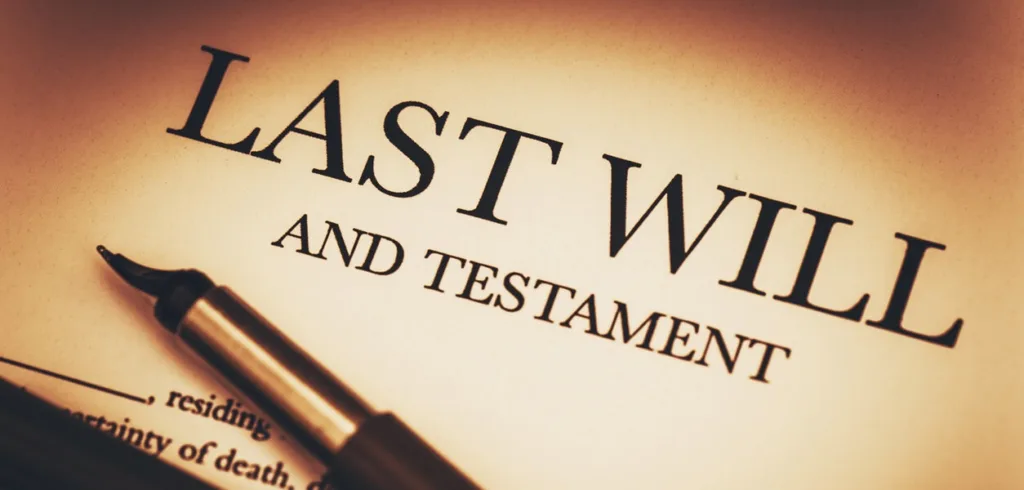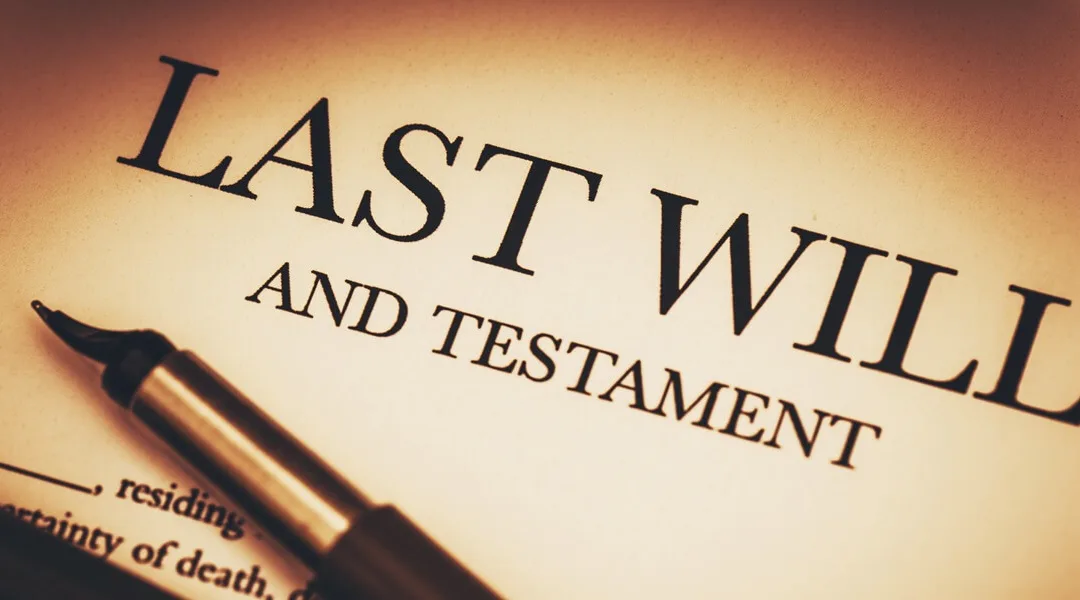
Many of us procrastinate when confronted with difficult tasks. At Retirement Essentials we see it often with people delaying applying for the Age Pension as they can’t face dealing with Centrelink. Another common area of procrastination is preparing a will. It is difficult because we have to confront the possibility of our demise and also because we might have to make awkward decisions about who gets what. Children, partners, parents, siblings, friends and charities are all among the possible beneficiaries
There are also a host of myths about wills that lead to people putting it off or getting it wrong. Today we are going to bust five of the most common myths.
Myth 1: It doesn’t matter if I have a will, my family will ignore it
Reality – Your lawful wishes must be followed to the greatest extent possible when you have a will. But make sure you have a valid will and are not relying on something 20 years old that doesn’t reflect your current circumstances.
Myth 2: It doesn’t matter if I die without a will
Reality – Wrong. It matters an awful lot for two really big reasons. The first is that if you don’t have a will you die intestate. In this circumstance a formula will be used to decide how your estate will be divided. The people that need support most, or those you want to help most, won’t necessarily get the biggest share. Favourite nieces, nephews and siblings etc could end in the same position as those you fell out with decades ago.
A second important reason is you make things really complicated for those left behind. When you die without a will, you don’t leave the right information that can help any outstanding debts, concerns or agreements to be settled in the easiest and most streamlined way possible, meaning that everything can take far longer and be more complex than necessary. You are creating a lot of stress for people that are already grieving.
Myth 3: I’m too young to need a will
Reality – All adults regardless of age, relationship status or level of income need a will.
Myth 4: I can’t look after my pets in my will
Reality – It’s true that in Australia your pets can’t be beneficiaries of your estate. But this doesn’t mean you can’t look after them. You can treat your pets as assets and leave them to a beneficiary in your will. You can also set aside money and resources to provide the best possible care for your pets.
Myth 5: I can get my partner to witness my will.
Reality – A witness cannot be a beneficiary of your will. If a beneficiary or their spouse/de facto partner acts as a witness, their share of the will would be void under Australian law.
This is just a snapshot of the myths surrounding wills and estate planning. There are a number of others including superannuation where the trustee of the fund in some circumstances determines who gets your super, not your will.
It’s important to ensure your assets go where you want. Having a valid will is essential to ensure this happens. To assist our members we have established an arrangement with Willed to provide wills and related services. Our members will get a 20% discount on the preparation of a simple will. You can find out more about this offer here.






I have no family member who could be appointed executor of my will, and I am unwilling to entrust the administration to a legal firm (too many bad stories). Apart from a state based Public Trustee are there any other disinterested organizations that can take on the duties of executor?
I would think twice about using the Public Trustee. My mother-in-law’s estate was handled by the NSW public trustee and it took over 2 years to finalise. Way too long for something that was reasonable straight forward
Peter Gentry ‘s note is very important. There are a huge number of people who have no relatives/ trusted friends who would be willing to take on the onerous and very time consuming task of administration of a will. There are only a few companies in Australia who list their services as will administration and the fees are very high. If we are leaving our estate to charities, this is an awful situation – a lot of the funds are chewed up by the fees charged by companies who administer wills. The insane laws in Australia are that if you are alive and donate to charity, you get a tax deduction. But if you die, they will take 17% out of your super, immediately, before it goes to charity!! (Unless you are part of the club of people who are able to choose to marry – then you can leave it all tax free to your spouse or your ex spouse and they don’t even have to be financially dependent on you! How is that for discrimination.)
I have heard from many sources over the years that it is a really bad idea to use the Public Trustee as executor of your will.
What about the 6th Myth, that of Wills being undermined by relatives purposefully left out, or reduced in their beneficiary, who then employ solicitors to over turn the will into their favour.
Yes, I do agree there, as sadly this seems to be a common occurrence now, unfortunately. Hence the reason to make a Will and to regularly review and update it if required.
I have not seen my daughter for 17 years. She disowned me and I have not seen my grandchildren from her. Am I obliged to leave her in my will. Cheers, Rod
Hi Rodney, you are not obliged to leave anyone in your will, that is one of the key reasons for a will is to ensure your estate is distributed in line with your wishes.
To add to the previous reply, if you have superannuation and don’t want your daughter to get that too, make sure you complete a “binding death nomination” that ensures YOUR super goes to who YOU want.
Do all relatives need to be informed of the death & can caveats be put upon any part of the estate by rogue relos?
Myth 5: I can get my partner to witness my will.
Reality – A witness cannot be a beneficiary of your will. If a beneficiary or their spouse/de facto partner acts as a witness, their share of the will would be void under Australian law.
That sounds like a VERY handy loophole….
In WA, unlike other jurisdictions in Australia, ANY adult can witness a will. This includes spouses/partners, children and other relatives, even if they are beneficiaries to that will.
Steven Sadler’s comment is interesting.
I was informed by a lawyer 30 years ago that a parent cannot legally cut a child out of their will. Has this law changed since then? Does it apply regardless of the age of a child, or only if they are under 18 years?
Our wills have been drawn up based upon the belief that parents had no choice, regardless of the how they have been treated.